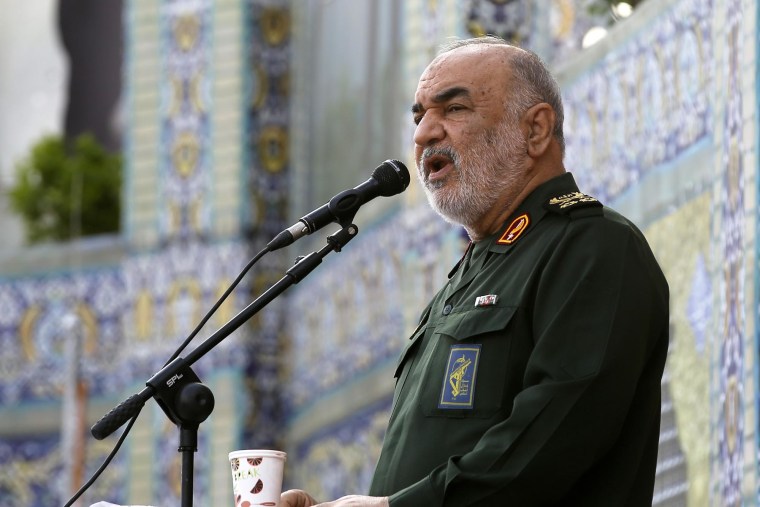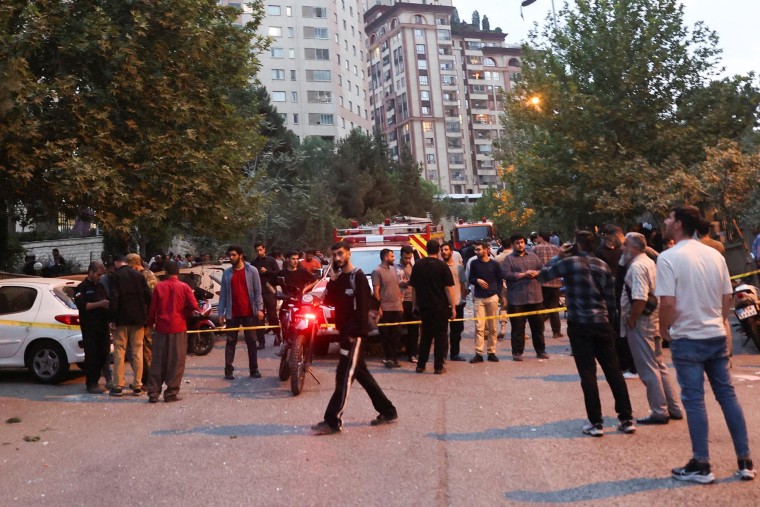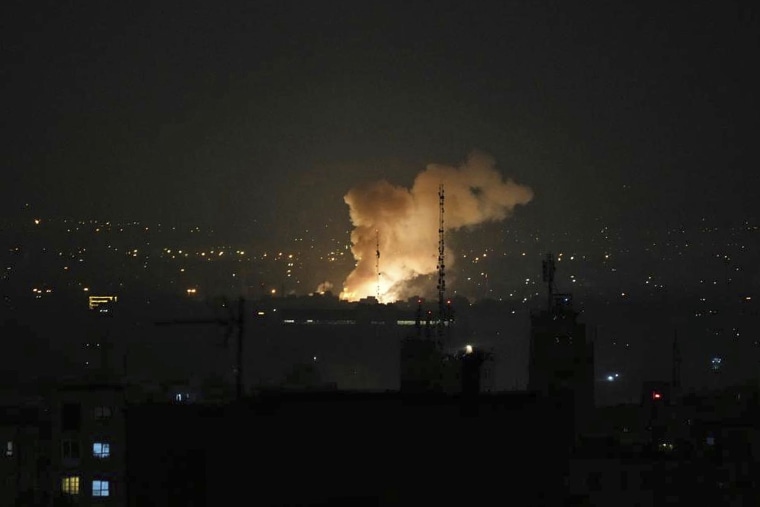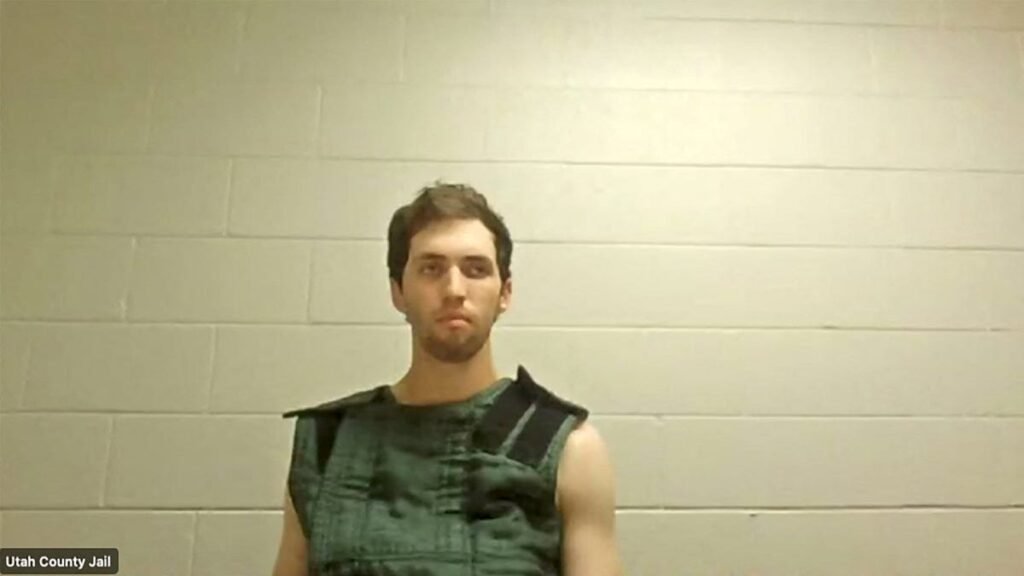Now Reading: Israel strikes Iran as fears of another war mount
-
01
Israel strikes Iran as fears of another war mount
Israel strikes Iran as fears of another war mount

IRGC commander in chief, scientists killed in strikes
Hossein Salami, the commander in chief of the Islamic Revolutionary Guard Corps, was killed in the Israeli strikes, its state media arm, Tasnim, reported.
Salami was at the IRGC headquarters in Tehran when the building was attacked.

Iranian state media also reported that the Israeli strikes also killed Maj. Gen. Gholam Ali Rashid, a top official in the IRGC; Fereydoon Abbasi, a nuclear scientist and former atomic energy chief; and Mohammed Mehdi Tehranchi, a nuclear scientist.
Netanyahu says strikes were aimed at enrichment facility, scientists, missile program
Israel targeted “Iran’s main enrichment facility” and nuclear scientists working on Iran’s nuclear program, Netanyahu said.
“We targeted Iran’s main enrichment facility,” he said.
“We targeted Iran’s leading nuclear scientists working on the Iranian bomb,” Netanyahu said. “We also struck at the heart of Iran’s ballistic missile program.”
‘Iran should not target any U.S. forces,’ House Intel chair says
Rep. Rick Crawford, R-Ariz., the chair of the House Intelligence Committee, said tonight that the United States was not involved in the attack on Iran and warned Iran about any response.
“To be clear, the United States is not involved, and Iran should not target any U.S. forces under any circumstance,” Crawford said in a statement.
“I will say I regret that we have come to this breaking point. However, under no circumstance can Iran get its hands on a nuclear weapon,” he said.
Iran state TV reports IRGC commander offices were attacked and are burning
The main building of the commander offices of Iran’s Islamic Revolutionary Guard Corps was attacked and is burning, state TV in Iran showed.
Other targets appeared to be residential compounds home to top military officials.
On Iranian news channel IRINN, attacks were reported in Natanz, Khandab, where there is a heavy water reactor, and Khoramabad.
Netanyahu thanks Trump for ‘confronting Iran’s nuclear weapons program’
Netanyahu thanked Trump in his address to the nation, citing opposition to Iran’s nuclear enrichment program.
“He has made clear time and again that Iran cannot have a nuclear enrichment program,” he said. “Today, it is clear that Iran was just buying for time.”
Trump, asked earlier today whether he was trying to talk Netanyahu out of attacking Iran, said that he preferred an agreement with Iran and that “we’re fairly close to an agreement.”
“As long as I think there is an agreement, I don’t want them going in, because I think it would blow it,” Trump said.
But he added: “Whether it’s going in or not going in, they can’t have a nuclear weapon. I’d prefer, I’d prefer the more friendly path.”
Iran generals and nuclear scientists were targeted, source says
Israel targeted and potentially killed top generals in Iran’s powerful Revolutionary Guard and scientists working on nuclear enrichment in the morning strikes, according to a source familiar with the operation.
The strikes will continue, according to the source.
Trump national security team monitored strikes in real time
Trump’s national security team monitored the strikes on Iran in real time in the Situation Room, according to five U.S. officials.
The national security team’s meeting today was ongoing at 9 p.m.
‘Israel refuses to be the victim of a nuclear holocaust,’ Netanyahu says
Netanyahu said Iran and its nuclear program are threats to Israel’s very existence.
“Today, the Jewish state refuses to be the victims of a nuclear holocaust perpetrated by the Iranian regime,” he said in an address tonight, in which he also called the Iranian people “brave.”
“Our fight is not with you,” Netanyahu said. “Our fight is with the brutal dictatorship that has oppressed you for 46 years.”
Photo: Iranians gather on Tehran street

People gather in the street near an emergency vehicle in the aftermath of Israeli strikes today in Tehran.
Israel warned ally of impending strikes, source says
An allied government source told NBC News tonight that they were notified of Israel’s strikes in advance, and received a message to the effect of, “This is going to be ugly, get your people out.”
Netanyahu says Iran recently took ‘steps to weaponize’ enriched uranium
Netanyahu said Iran has called for Israel’s destruction and recently took steps to weaponize enriched uranium.
“They’ve backed up their genocidal rhetoric with a program to develop a nuclear weapons,” Netanyahu said.
He alleged that Iran in recent years has produced enough highly enriched uranium “for nine atom bombs.”
“In recent months, Iran has taken stapes that it has never taken before — steps to weaponize this enriched uranium,” he said. “And if not stopped, Iran could produce a nuclear weapon in a very short time.”
Netanyahu said that “it could be a year, it could be within a few months, less than a year.”
“This is a clear and present danger to Israel’s very survival,” he said.
Global markets plunge on news of strikes; oil surges 6%
U.S. stock futures, an indication of where stocks will open at 9:30 a.m. ET tomorrow, plunged on news from Israel that it conducted airstrikes on Iran.
S&P 500 futures slid 1.6% as Nasdaq futures plunged 1.8%. Dow Jones Industrial Average futures dropped more than 600 points, or about 1.4%.
Meanwhile, the price of oil soared 6%. Iran and other countries in the region are among the world’s top producers of oil, and any disruption could cause ripples throughout the world.
Global stock markets also dropped, led by a more than 1.5% drop on Japan’s Nikkei index and a 1.2% decline on South Korea’s Kospi stock index.
Netanyahu says Israel’s operation ‘will continue for as many days as it takes’
Netanyahu said in an address that Israel launched “a targeted military operation to roll back the Iranian threat to Israel’s very survival.”
“This operation will continue for as many days as it takes to remove this threat,” he said.
Israel says it targeted Iran’s nuclear program
Israel said in a statement that it launched an offensive against Iran’s nuclear program.
The statement is below:
“The IDF launched a preemptive, precise, combined offensive to strike Iran’s nuclear program.
“Dozens of IAF jets completed the first stage that included strikes on dozens of military targets, including nuclear targets in different areas of Iran.
“Today, Iran is closer than ever to obtaining a nuclear weapon. Weapons of mass destruction in the hands of the Iranian regime are an existential threat to the State of Israel and to the wider world.
“The State of Israel has no choice but to fulfill the obligation to act in defense of its citizens and will continue to do so everywhere it is required to do so, as we have done in the past.”
Iran state media reports explosions heard in and around Tehran
Iranian state-run media IRNA reported that “sounds of explosions have been heard in and near the Iranian capital, Tehran.”
IRNA reported that the source of the sounds was not clear.
In addition to the report by IRNA, sounds of what appeared to be jets and antiaircraft missiles have been heard north of Tehran.

Rubio says Israel took ‘unilateral action’ in striking Iran
The Trump administration distanced itself from Israel’s strikes on Iran, saying Israel took “unilateral action.”
“We are not involved in strikes against Iran and our top priority is protecting American forces in the region,” U.S. Secretary of State Marco Rubio said in a statement.
He said Israeli officials had communicated to Washington that Israel’s action was “necessary for its self-defense.”
“President Trump and the Administration have taken all necessary steps to protect our forces and remain in close contact with our regional partners. Let me be clear: Iran should not target U.S. interests or personnel,” Rubio said.
Trump said earlier today an attack ‘would blow it’ on deal
President Donald Trump earlier today appeared to say he was against an Israeli attack on Iran while there was hope for a deal with the United States.
Asked whether he has been trying to talk Israeli Prime Minister Benjamin Netanyahu out of an Israeli attack on Iran, Trump said, “I’d much prefer an agreement.”
“We’re fairly close to an agreement. We are fairly close to a pretty good agreement,” he said.
“I’d much prefer an agreement,” he said. “As long as I think there is an agreement, I don’t want them going in, because I think it would blow it — might help it actually, but it also could blow it.”
Iran, Israel also traded attacks in October
Israel also attacked Iran in October, weeks after Iran launched around 200 missiles at Israel.
Iran launched its attack, which officials said was largely intercepted, after Israel launched attacks in Lebanon, including the killing of Hezbollah leader Hassan Nasrallah. The Hezbollah militant group is backed by Iran.
In response to the Oct. 1 missile attack, Israel struck Iranian military sites in three waves later that month.
The Israeli Defense Forces said then that it hit aerial defense systems and missile manufacturing facilities in Iran, avoiding nuclear and oil facilities in what appeared to be a limited attack aimed at deterrence by showing its military might while avoiding a major escalation.
The IDF said at the time that it was responding to “months of continuous attacks” from Iran and its regional allies.
Israel declares state of emergency after confirming Iran strikes
Israel confirmed it had launched a strike on Iran and declared a state of emergency early Friday local time.
“Following the State of Israel’s pre-emptive strike against Iran, a missile and drone attack against the State of Israel and its civilian population is expected in the immediate future,” Defense Minister Israel Katz said in a statement early Friday local time.

























































